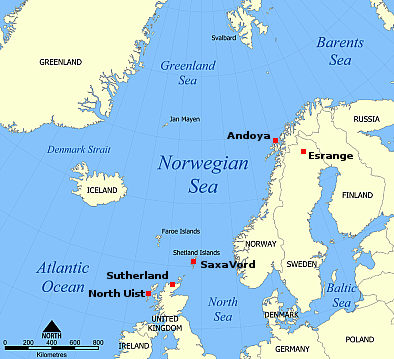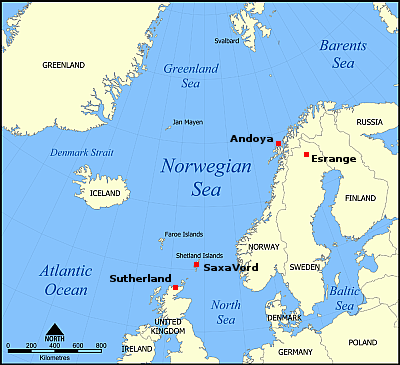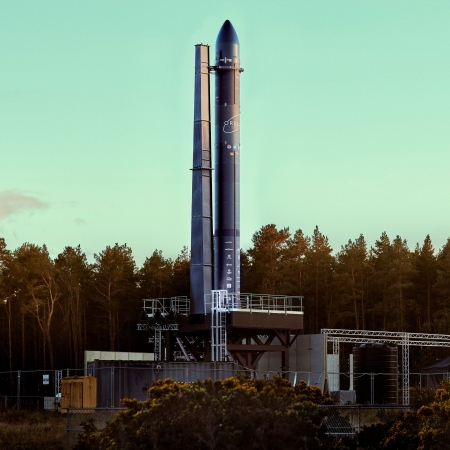ESA picks five rocket startups for future launch contracts

Capitalism in space: The European Space Agency (ESA) today announced that it has chosen five rocket startups — out of twelve that applied to its “European Launcher Challenge” — now approved to bid on future ESA launch contracts.
The startups are Isar Aerospace and Rocket Factory Augsburg from Germany, PLD Space from Spain, MaiaSpace from France, and Orbex from Great Britain. Though none have successfully completed a first launch. all five showed the most advancement. Isar has had one attempted launch failure, while Rocket Factory lost its rocket during a static fire test just before launch. PLD meanwhile has achieved a short suborbital test, while Orbex has said it was ready to launch three years ago but was blocked by red tape in the United Kingdom.
MaiaSpace is technically the least advanced, but it is also a subdivision wholly owned by ArianeGroup, a partnership of Europe’s largest aerospace companies, Airbus and Safran. It was also established in partnership with France’s space agency CNES. Thus, it has well-established connections within Europe’s aerospace industry that makes it favored.
The goal of this ESA program is to shift from the government model it has used for decades, where ESA builds and owns the rockets, to develop a competitive rocket industry of independent companies that market their rockets to ESA for contracts. ESA has seen the success in the U.S. when NASA shifted to this capitalism model in the past decade, and wishes to emulate this.
Whether it remains uncertain. ESA is still mired by bureaucratic government thinking, as illustrated by the next phrase in this challenge:
The next phase of the proposal will see ESA open dialogue between the preselected companies and their respective Member States. This process will help formalise the proposal ahead of the agency’s Ministerial-Level Council meeting (CM25), which will take place toward the end of the year. At CM25, Member States are expected to formally commit funding to the initiative. Following the meeting, ESA will issue a Phase 2 call for proposals, which will be restricted to the preselected candidate companies. European Launcher Challenge contracts will then be awarded after a final evaluation period.
The ESA’s very nature seems to impose odious bureaucratic rules on its member nations that could hinder these private companies. For example, these rules now block any other independent rocket startups from bidding on contracts. Like the bootleggers during Prohibitioin, the ESA has essentially divided competition up by territory and given it to these favored companies. No one else is allowed in.

Capitalism in space: The European Space Agency (ESA) today announced that it has chosen five rocket startups — out of twelve that applied to its “European Launcher Challenge” — now approved to bid on future ESA launch contracts.
The startups are Isar Aerospace and Rocket Factory Augsburg from Germany, PLD Space from Spain, MaiaSpace from France, and Orbex from Great Britain. Though none have successfully completed a first launch. all five showed the most advancement. Isar has had one attempted launch failure, while Rocket Factory lost its rocket during a static fire test just before launch. PLD meanwhile has achieved a short suborbital test, while Orbex has said it was ready to launch three years ago but was blocked by red tape in the United Kingdom.
MaiaSpace is technically the least advanced, but it is also a subdivision wholly owned by ArianeGroup, a partnership of Europe’s largest aerospace companies, Airbus and Safran. It was also established in partnership with France’s space agency CNES. Thus, it has well-established connections within Europe’s aerospace industry that makes it favored.
The goal of this ESA program is to shift from the government model it has used for decades, where ESA builds and owns the rockets, to develop a competitive rocket industry of independent companies that market their rockets to ESA for contracts. ESA has seen the success in the U.S. when NASA shifted to this capitalism model in the past decade, and wishes to emulate this.
Whether it remains uncertain. ESA is still mired by bureaucratic government thinking, as illustrated by the next phrase in this challenge:
The next phase of the proposal will see ESA open dialogue between the preselected companies and their respective Member States. This process will help formalise the proposal ahead of the agency’s Ministerial-Level Council meeting (CM25), which will take place toward the end of the year. At CM25, Member States are expected to formally commit funding to the initiative. Following the meeting, ESA will issue a Phase 2 call for proposals, which will be restricted to the preselected candidate companies. European Launcher Challenge contracts will then be awarded after a final evaluation period.
The ESA’s very nature seems to impose odious bureaucratic rules on its member nations that could hinder these private companies. For example, these rules now block any other independent rocket startups from bidding on contracts. Like the bootleggers during Prohibitioin, the ESA has essentially divided competition up by territory and given it to these favored companies. No one else is allowed in.



